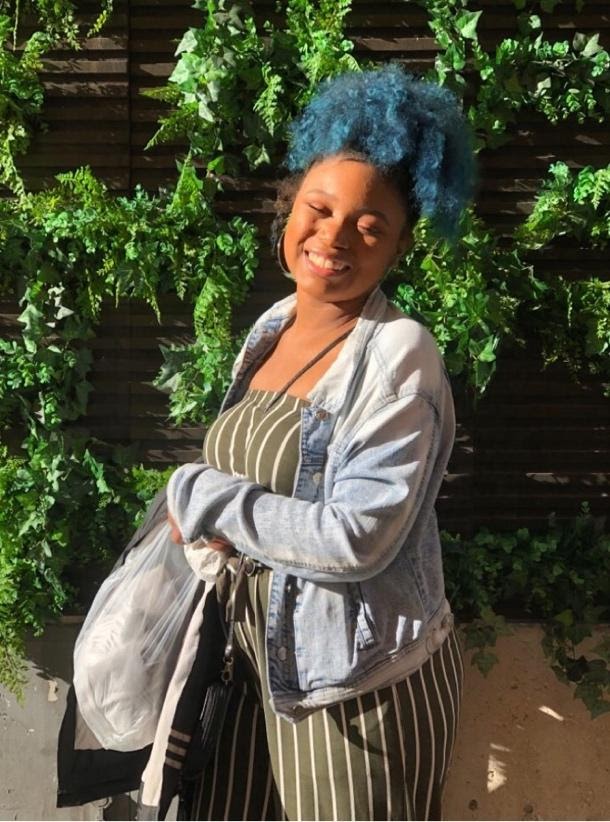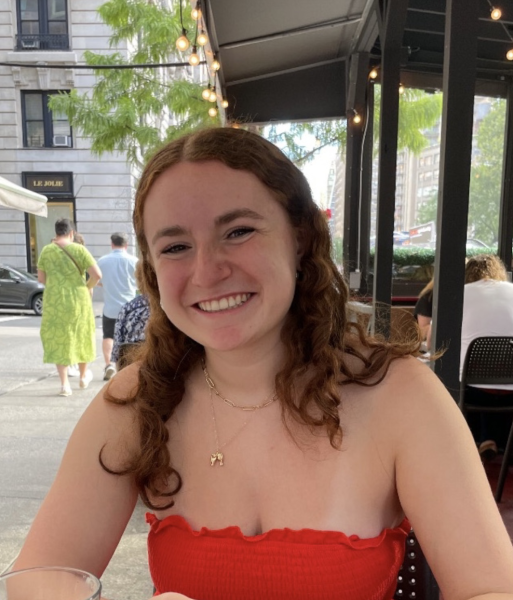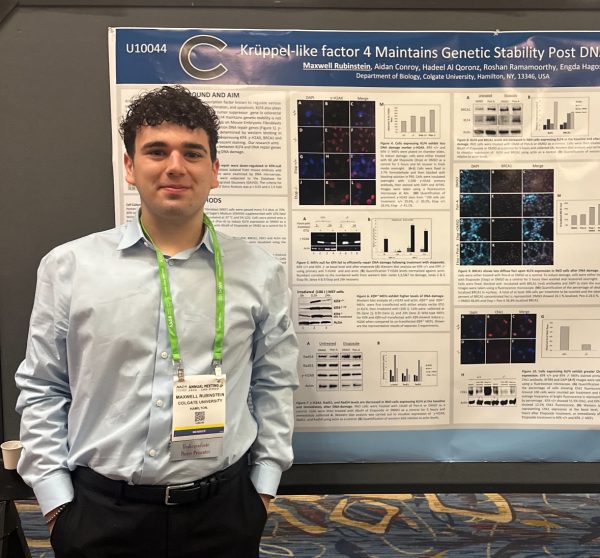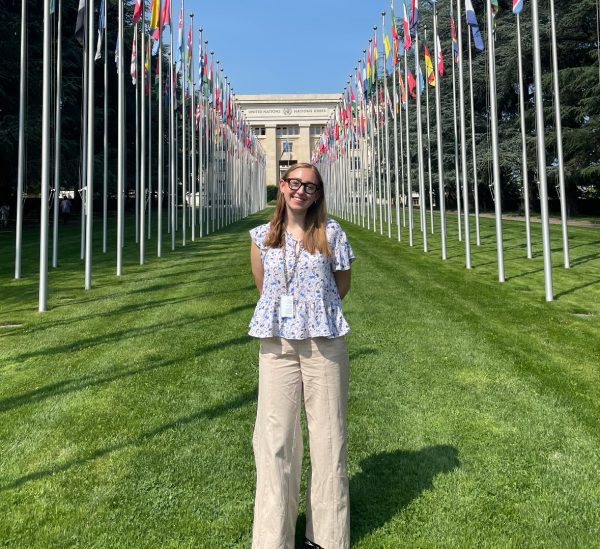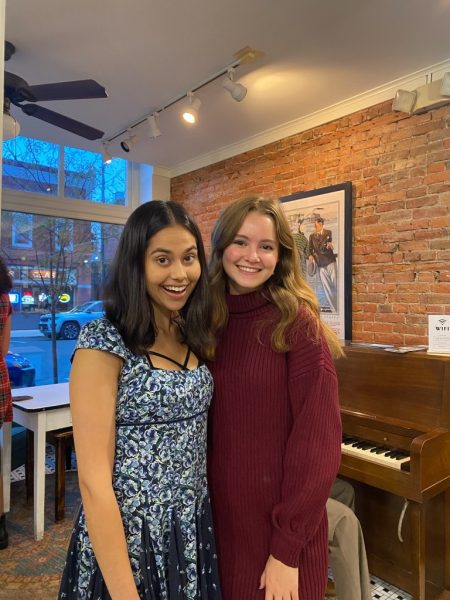Elsie Kindall and the Power of Social Justice
“Let’s start with sex education. Actually, let’s start with queer sex education,” senior Elsie Kindall, an educational studies concentrator from Dallas, Texas, said. “Let’s start with deconstructing violence, how we all internalize violence and the ways violence plays out, because we are kind of sick and tired of the same stories and the same narratives where nothing is done to support queer people,” she continued. “So, with this workshop, we’re putting queer BIPOC at the center and then we’re calling on all of Colgate to come into our discussions, and really unpack these tough conversations around heteronormativity, around racism and around how we have or haven’t been taught certain things.”
Kindall is talking about the “Queer Sex and Consent Education” workshop, a five-part series jointly organized by QTPOC (Queer and Trans People of Color), the Medusa Movement and Haven this spring semester. As a part of the core leadership in QTPOC, Kindall has played an instrumental role in organizing these events.
Kindall has been a part of QTPOC since her junior year spring, and a part of the club’s core leadership since last fall. While initially not planning to run for a leadership position, Kindall stepped in when she realized she could best help the group as one of its leaders.
“And then boom, I ended up liking it,” Kindall said.
Outside of her work in the QTPOC core, Kindall is actively involved in the Medusa Movement, a student-led activist organization committed to making Colgate a more survivor-centric and trauma informed community. She is especially committed to helping the Medusa Movement build and maintain a strong relationship with the BIPOC and queer people on campus.
“In the Medusa Movement, I’m a part of the accountability committee, where we not only hold others accountable, but also hold ourselves accountable. What we do is work on trying to develop a framework that is anti-racist and have dialogue about anti-racism as well as heteronormativity and other forms of oppression,” Kindall said. “We are building the structure to hold the members of the Medusa Movement accountable so that they are able to reach out to BIPOC and have authentic relationships and to reach out to queer people and have authentic relationships. What we want to do is make sure that this movement does not become something that is just centered around white students or Greek Life.”
Kindall’s activism at Colgate has been heavily influenced by her experiences as a queer Black woman on campus.
“I will say I’ve had the privilege of being an OUS (Office of Undergraduate Studies) scholar,” Kindall said. “So, my first experience with Colgate was actually being around a bunch of low-income POC at the OUS Summer Institute.”
But that image of Colgate changed almost instantly once her first-year came around.
“I had never been around so many affluent white people in my life. Where I come from in Dallas, I lived in different inner-city neighborhoods and always moved. I was always used to being around low income Black and Brown people.”
Beyond the micro-aggressions she has faced, both in and out of the classroom, simply by existing as a Black woman on a predominantly white campus, Kindall has also been at Colgate long enough to witness multiple racist events unfold.
“At least with my year, during our April visit days, that was when the glue gun incident happened. We weren’t students here yet, but like, we were here. And then the Chinese New Year graffiti incident happened. And then all these incidents just kept happening. It irritates me that through all these micro-aggressions and traumatic racist events, as POC, we are expected to be fully functional and very, like, on top of things.”
“I am in two dance groups,” Kindall said, glad to change the topic when asked what makes her happy on campus. “I have been in Latin American Dance since the second half of my first semester at Colgate. I am also in K-pop dance, which is now known as Sipsam. We actually went through filming our video for Dancefest recently. I am very excited that we get to have Dancefest in some capacity; Dancefest is one of the biggest highlights in my Colgate career. It makes me very excited about being here.”
Like every other Colgate student, Kindall’s senior year has been heavily altered by the pandemic and its limitations. After finishing her senior seminar last fall, she was recommended for an honors in educational studies by her advisor.
“And so, for the first half of the semester, I was on an honors thesis track. But on the last two days of withdrawal, I decided to withdraw. I was researching gender performance, looking specifically at Black girls in D.C.”
She felt as though there was too much piled onto the semester, which, combined with impostor syndrome and the feeling of isolation that came from being the only Black student in her honors thesis class, made her decide the project wasn’t worth pursuing. Kindall withdrew, deciding to put her mental health first, and found solace instead in social justice and advocacy on campus.
“It has been stressful, I’m not gonna lie, but it has been one of the highlights of my semester,” she said. “This is way more impactful to me than working on my thesis could ever be. This has been something that I’ve really enjoyed doing.”


